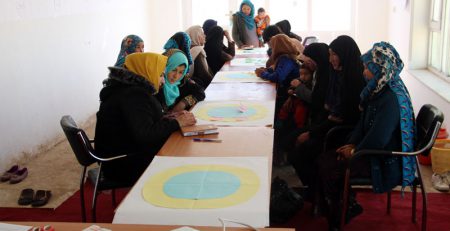Final Evaluation of the SEDEP Programme in Afghanistan
| Project Title: Final Evaluation of the SEDEP Programme in Afghanistan | |
| Client Name: Caritas Germany | |
| Project Description:
In March 2021, Caritas Germany (CG) commissioned Afghan Australian Research and Management Consulting (ARM Consulting) to conduct an independent final evaluation of the Sustainable Economic Development and Employment Generation Promotion (SEDEP) program. SEDEP is a multi-year program funded by the Deutsche Gesellschaft für Internationale Zusammenarbeit (GIZ) and implemented by CG through national partners in Balkh and Kabul provinces. SEDEP has aimed to improve livelihood opportunities and encourage positive reintegration into the labor market for returnees, internally displaced persons (IDPs), and vulnerable young groups with relevant needs. The program has two objectives: 1. To build the ability to work through non-formal education with a focus not exclusive on young people between 16 and 26 years with a vulnerable background (IDP families, returnees, and poor families). 2. To build psychosocial competence and life skills of returnees and IDPs to contribute to the integration of the IDPs and returnees into the host communities through cultural dialogue and psychosocial support and to enable them to improve their access to services of partner institutions. The scope of work for the consultancy assignment was two-folded. Firstly, the evaluation examined the extent to which the SEDEP program has accomplished or made progress against its intended objectives. The evaluation has also documented lessons learned and challenges encountered during the implementation. Secondly, the evaluation involved a Labour Market Assessment (LMA) to inform the design and implementation of an anticipated SEDEP III on the most suitable activities for economic empowerment and business start-up, according to the market’s needs. The methodology adopted for the evaluation comprises a combination of qualitative and quantitative data collection methods. The qualitative data was gathered through a literature review, key informant interviews (KIIs), an Outcome Harvesting Workshop (OHW), and field observations with relevant program stakeholders. The evaluation involved 39 interviews with key informants (19 females and 20 males), including the program implementation team, government officials, direct project beneficiaries, private sector actors, community leaders, and others. The quantitative data was collected through questionnaire-based structured interviews with 344 beneficiaries who attended the training courses in Balkh and Kabul provinces. |
|
| Project Duration: 2 months | Project Location: Kabul and Balkh |
| Project Start Date: March 2021 | Project End Date: April 2021 |

